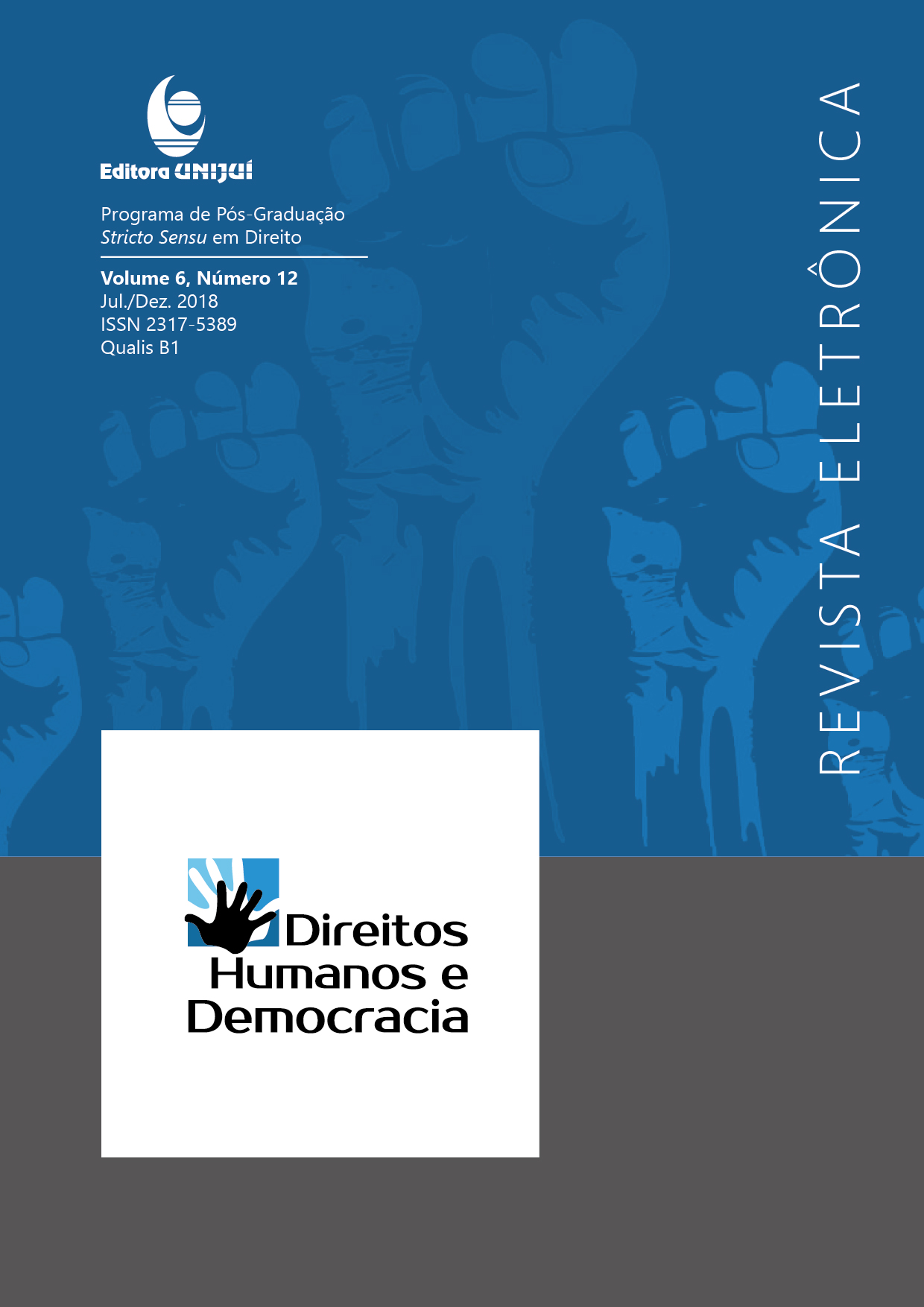SIMORE: FERRAMENTA DA QUARTA REVOLUÇÃO INDUSTRIAL A SERVIÇO DA EFETIVAÇÃO DE DIREITOS HUMANOS NO PARAGUAI E NA REPÚBLICA DOMINICANA
DOI:
https://doi.org/10.21527/2317-5389.2018.12.135-149Abstract
O presente estudo aborda o problema da falta de efetividade dos direitos humanos no Paraguai e na República Dominicana, com base em pesquisa bibliográfica e legislativa, segundo metodologia analítica, empírica e crítica. Investiga-se, primeiramente, as condições histórico-políticas, jurídicas e socioeconômicas desses países, separadamente, para depois, analisarem-se os caminhos que podem conduzir à efetiva aplicação dos direitos humanos em seus territórios. Destaca-se a experiência paraguaia no desenvolvimento do Sistema de Monitoração de Recomendações (SIMORE) em parceria com a ONU e a cooperação entre o Paraguai e a República Dominicana no Programa de Cooperação Técnica SIMORE-PARAGUAY, que levou ao desenvolvimento do novo sistema denominado SIMORED, Sistema de Monitoramento de Recomendações da República Dominicana, para acompanhamento das recomendações acerca de direitos humanos formuladas pelos órgãos de tratados e procedimentos especiais das Nações Unidas. Avalia-se que essa ferramenta digital adere às tendências da quarta revolução industrial e integra transparência, responsabilização, sustentabilidade, dialogismo, imparcialidade, probidade e eficiência no processo de efetivação dos direitos humanos, além de alinhar os citados países com os Objetivos de Desenvolvimento Sustentável da Organização das Nações Unidas.
Downloads
Published
How to Cite
Issue
Section
License
By publishing in the Revista Direitos Humanos e Democracia, authors agree to the following terms:
Articles are licensed under the Creative Commons Atribuição 4.0 Internacional (CC BY 4.0), which allows:
Share — copy and redistribute the material in any medium or format;
Adapt — remix, transform, and build upon the material for any purpose, including commercial use.
These permissions are irrevocable, provided the following terms are respected:
Attribution — authors must be properly credited, with a link to the license and indication of any modifications made;
No additional restrictions — no legal or technological measures may be applied that restrict the use permitted by the license.
Notices:
The license does not apply to elements in the public domain or covered by legal exceptions.
The license does not grant all rights required for specific uses (e.g., image rights, privacy, or moral rights).
The journal is not responsible for opinions expressed in the articles, which remain the sole responsibility of the authors. The Editor, with the support of the Editorial Committee, reserves the right to suggest or request modifications when necessary.
Only original scientific articles presenting research results of interest, not previously published or simultaneously submitted to another journal with the same purpose, will be accepted.
References to trademarks or specific products are intended solely for identification purposes and do not imply any promotional endorsement by the authors or the journal.
License Agreement: Authors retain copyright over their articles and grant the Revista Direitos Humanos e Democracia the right of first publication.













